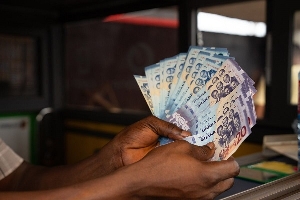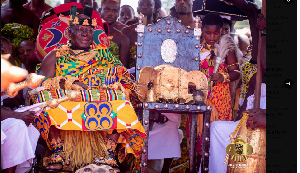 Price tags in supermarkets are now in both US dollars and Zigs
Price tags in supermarkets are now in both US dollars and Zigs
Sylvia Dhliwayo, an expert at scaling the hurdles of Zimbabwe’s crisis-ridden economy and negotiating the many currencies at play, is upset.
She works hard every day to send her four children to school. Waking up at 04:00 most mornings, she heads to the main market in Mbare in the capital, Harare, to buy maize, peanuts, doughnuts, eggs, and buns to sell at her neighbourhood street stall.
From tomatoes to avocados, pots to second-hand clothes, Mbare is a hub of commerce and the traders there set the prices, which change daily in the fluctuating economy.
What has angered Ms Dhliwayo and other traders is the latest move by the government to introduce a new local currency.
“They gave us no warning. We save and save their useless money and overnight the notes are worthless,” she tells me in exasperation.
Known as the Zig, which stands for “Zimbabwe gold”, it was introduced a month ago and replaces the digital RTGS currency and cash “bond notes”.
The move is supposed to help tackle inflation and hyperinflation - a disease that has plagued Zimbabwe for the last two decades. This led the government to abolish the Zimbabwe dollar in 2009 and ever since, most people have been using the US dollar.
Just before the Zig was launched, I could buy a packet of peanuts from Ms Dhliwayo for $0.50 (£0.40) or Z$2,500 bond notes.
But when Reserve Bank Governor John Mushayavhanu gave Zimbabweans three weeks to exchange their bond notes, they lost what little value they had immediately - the bag of peanuts shot up to Z$40,000, though by then Ms Dhliwayo only accepted payment in US dollars.
Much to Ms Dhliwayo’s further exasperation, she is still only trading in US dollars.
Traders like to use the local currency to give customers change as there is a shortage of US coins. Supermarkets often opt to give change in lollipops.
Ms Dhliwayo would use Zigs if there were any to be had - but it mostly exists digitally, and in a place where people can rarely charge their phones because of blackouts, it is cash that counts.
“The new money is still not available, it’s only on people’s phones and in bank accounts. Everything, absolutely everything, is still in US dollars.”
Mr Mushayavhanu struck a defiant attitude in early April when introducing the gold-backed currency, saying it was done on World Bank advice.
“If you're going to blame me, you're actually blaming the World Bank,” he said, urging Zimbabweans fed up of seeing their money disappear from one day to the next to have patience.
“Maybe they didn't advise us properly. And if they did not advise us properly, it's fine. Let's refine it.”
But given that this is the sixth time the local currency has changed in 20 years, Zimbabweans’ lack of confidence is understandable.
The Zimbabwe dollar, whose highest denomination at one time was Z$100 trillion, has morphed into bearer cheques, agro cheques, RTGS, and bond notes.
A local independent Sunday paper, The Standard, bemoaned the lack of publicity over the sudden currency change to Zigs as phone companies, supermarkets, and public transport all ceased to accept the previous incarnation, bond notes, as legal tender.
Tourists have found themselves unable to make payments by Visa as the uncertainty over Zig’s true worth has rendered their cards unusable while the recalibration continues.
“If the Zig doesn’t go the same way as the RTGS, bearer cheques, agro cheques and bond notes that came before it, then it would be a plus for Zimbabweans who have in the past seen their entire savings wiped out by inflation,” the paper’s editorial surmised.
Yet you can see why businesses are reluctant to deal with it.
A gardener working in southern Harare showed me on Friday morning that he was being offered 12.91 Zig for $1 on his phone bank account – though he thought the going price on the streets was 13.50 Zig to $1. A couple of hours later a second-hand clothes seller down the road said he was trading at 15 Zig for $1.
For Maxwell Gombe, who makes a living selling old billion and trillion dollar notes - souvenirs of economic meltdown - to tourists visiting the nation’s splendour spots, it is business as usual.
“US dollars for old notes… 500,000; billions; trillions,” he shouts through his loud hailer in Harare, where he buys the old notes to sell up in Victoria Falls.
“They seem to like having a billion or a trillion dollar note in their purses or wallets. We buy them for $1 and sell them for five. If they’re drunk we can get $10 per note!” He laughs and walks away.
In Mbare, US dollar traders use loud hailers to tout for business in torn notes. Only crisp notes are accepted here - so they buy damaged ones at a lower price.
But black market foreign exchange dealers are finding themselves at the centre of a clampdown by the authorities, anxious to shore up the new currency that officially went into circulation this week.
Ironically - as is the case with everyone who finds themselves on the wrong side of the law in this country - the more than 60 currency dealers arrested last week had to post bail in US dollars.
Want a house? You must pay in American currency.
School fees? US dollars. A colleague told me four of his grandchildren - ranging in age from around eight to 18 - have not been to school since January as the family cannot raise the money.
A car? American currency, please.
Rent? A new Zimbabwean passport? All American currency.
And how is this possible? Most of the nation survives on remittances.
Daughters and sons who have joined a massive brain drain and moved across the globe to work and transfer US dollars to struggling families.
“It’s unbelievable. It’s as if we’re on a hamster wheel,” an economist, who asked not to be named, told me.
“The same mistakes, another currency no one knew about before its announcement. And yet the country has no productivity.
“Even the gold they’ve pegged it to cannot be mined fast enough because most of it is being stolen,” he said, referring to allegations that large amounts of gold had been smuggled out of Zimbabwe by people with links to senior government officials.
Even President Emmerson Mnangagwa has found himself embarrassed by the antics of relatives caught up in the scandal.
“This is miracle money, printed and not made - and therefore useless,” said the economist, who once worked for the government.
He explained that civil servants get paid part of their salary in US dollars and part in the local currency - if at all.
“It’s been a struggle and a mess. Show me someone who’s been paid on time and I’ll buy you a whiskey,” he added.
Many citizens, desperate to escape this mess, cross illegally into South Africa in search of an elusive economically sustainable future.
Although there are two economic realities at play in Zimbabwe - in the wealthier northern suburbs of the capital, you will find shopping malls with Belgian chocolates, international wines, and very large cheeseburgers, where local currency is not needed.
For everyone else, the Zig notes will become a reality. A local ice-cream seller told me he was given his first note by a customer on Friday afternoon.
“I don’t understand Zigs yet but if I see them in circulation I’ll use them. There is no choice we don’t all have access to US dollars,” he said.
But like Ms Dhliwayo, he is unhappy and has no faith in the notes retaining their value.
The gardener agreed: “It’s like newsprint. It won’t last.”
And some are making the inevitable jokes about how the name sums up this country’s zigzag economy.
Others in Harare have taken to the vernacular and say Zig stands for “Zimbabwe i gehena”, meaning in Shona, “Zimbabwe is hell”.












